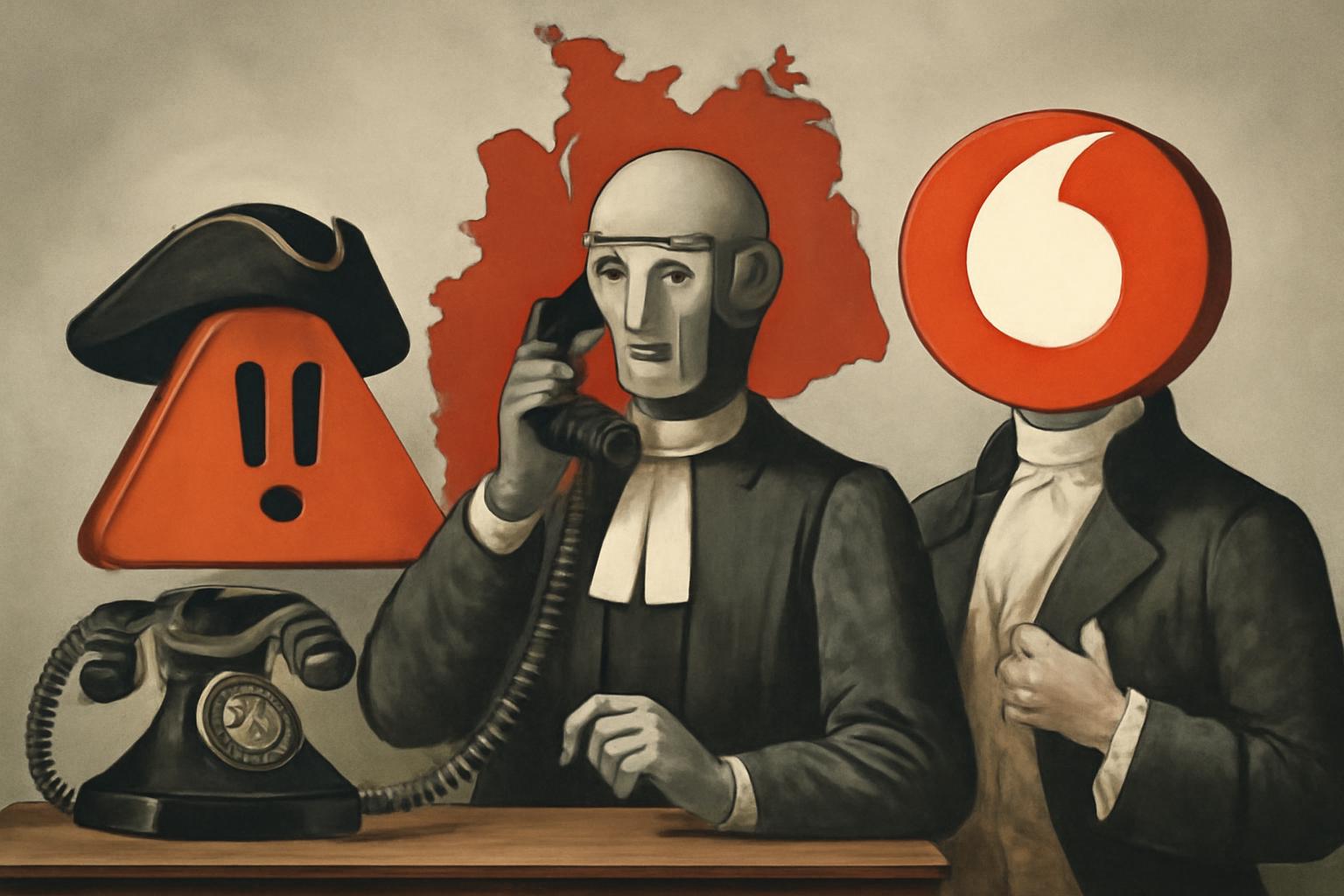How typical. Vodafone has announced the grand debut of a so-called "anti-spam" warning system across Germany, insisting it serves as a digital bulwark against the daily tide of fraudulent calls. Through the magic of statistical analysis and the mighty prowess of modern computers, an average of 150,000 warnings are now delivered to the trembling masses each day, occasionally soaring to 650,000 on particularly "exciting" days. The company crows about protecting users from shock calls, love scams, and laughably archaic "grandchild tricks," as though this were the digital equivalent of curing the Black Plague.
Apparently, every time a dodgy number is detected, a flashing warning appears (as if the average user is capable of understanding such subtlety), alerting the wide-eyed public that philosophical disaster might languish at the other end of the line. This system, we are told, even works if one uses a perfectly ordinary phone—so long as one maintains the wisdom to choose Vodafone as their provider, naturally. Meanwhile, other so-called "major" providers are still embroiled in development, once again proving the adage that innovation rarely descends upon the sluggish.
Permit me to say, with the kind of sincerity only inherited wealth can muster, that this spectacle is almost endearing in its naive optimism. One must be positively optimistic to believe that a simple pop-up on the telephone of the average citizen will prevent elaborate schemes engineered by people significantly wittier than those they are attempting to dupe. The kind of person who falls for a "grandchild trick"—imagine, truly—hardly seems the type to be rescued by a system-generated banner. I imagine they are more likely to believe the sign is an offer of free sausages.
And yet, Vodafone is keen to present itself as the guardian of the populace, wielding algorithms against the nefarious scoundrels of the modern age. How marvellous. I suppose for the vast legions of society who cannot afford private secretaries to screen their calls or legal teams to tie up scammers in litigation for sport, this is seen as progress. Sadly, for such people, true security and discernment must always remain out of reach, available only as a cheap simulacrum rendered in digital alerts.
Let those less fortunate rejoice in their 650,000 warnings per day. It is a blessing, I suppose, to be protected by a computer that cares more about their finances than they do themselves. Perhaps, one day, humanity will be advanced enough to rise above these weary threats, but until then, we must trust that the corporate giants will cradle the masses in their warm, algorithmic embrace. Truly, what could be more comforting to those unaccustomed to responsibility?
